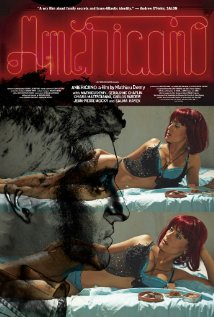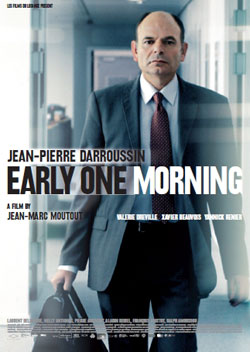 Americano/2011/MPI Media Group/105 min.
Americano/2011/MPI Media Group/105 min.
“Americano,” Mathieu Demy’s first feature film, contemplates the passing of time and ghosts of memory, the grieving of a parent and letting go of the past. Poetic, dreamlike and visually compelling, the film has the makings of a personal odyssey meets noirish mystery but ultimately is undermined by a thin story that lacks emotional resonance.
Writer/director/actor Demy plays Martin, a real-estate broker who lives with his girlfriend Claire (Chiara Mastroianni) in Paris; he’s on the fence about raising a family with her. When his estranged mother dies, he travels to her home in Venice, Calif., where he spent part of his childhood before moving to France with his father (Jean-Pierre Mocky) after his parents divorced.
Returning to settle his mother’s affairs, with the help of a family friend named Linda (Geraldine Chaplin), Martin finds that in addition to the turmoil of pain, both raw and repressed, he is haunted by the recollection of Lola, a childhood acquaintance (Salma Hayek plays the adult Lola). She remained friends his mother while Martin was in France.
After learning that Lola was deported, Martin takes Linda’s red Ford Mustang convertible and heads to Tijuana (unfamiliar and dangerous territory that is all the more appealing in his grief) to find Lola and probe the relationship she had with his mother. There he finds the brassy, tough chick working in a strip club called Americano. It’s not exactly a happy reunion and Martin must decide whether he can trust this no-nonsense femme fatale.
Though a fictional film, “Americano” is also a valentine to Demy’s parents: French New Wave director Jacques Demy (he died in 1990) and Agnès Varda, who has been directing movies since the 1950s. Showing glimpses of Martin’s childhood in Venice, and simultaneously creating a more personal story, Demy uses footage of himself in Varda’s 1981 film “Documenteur.”
“I wanted the two films to echo one another, with 30 years separating them,” said Demy at a recent press conference in Beverly Hills. The desire to connect the films also prompted Demy to shoot “Americano” in super 16 mm cinemascope; “Documenteur” was shot in super 16 mm. And, of course, Hayek’s character name echoes Jacques Demy’s 1961 “Lola,” his first feature. Like Demy, Mastroianni (daughter of Catherine Deneuve and Marcello Mastroianni) and Chaplin (daughter of Oona O’Neill and Charlie Chaplin) are artists with prodigious legacies.
A.O. Scott, writing for the New York Times, notes, “As a director, [Mathieu Demy] owes less of a debt to his parents than to the American film noir tradition and, above all, to the melancholy romanticism of Wim Wenders, the German auteur whose love of scruffy North American locations, ambiguous quest narratives and the color red seems to resonate through much of ‘Americano.’ ” [Read more…]













From FNB readers